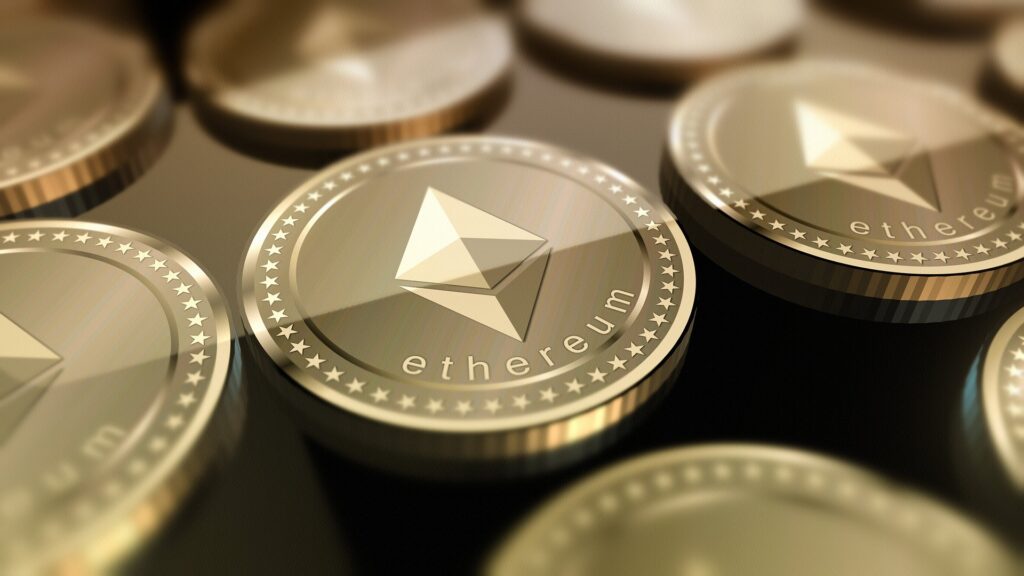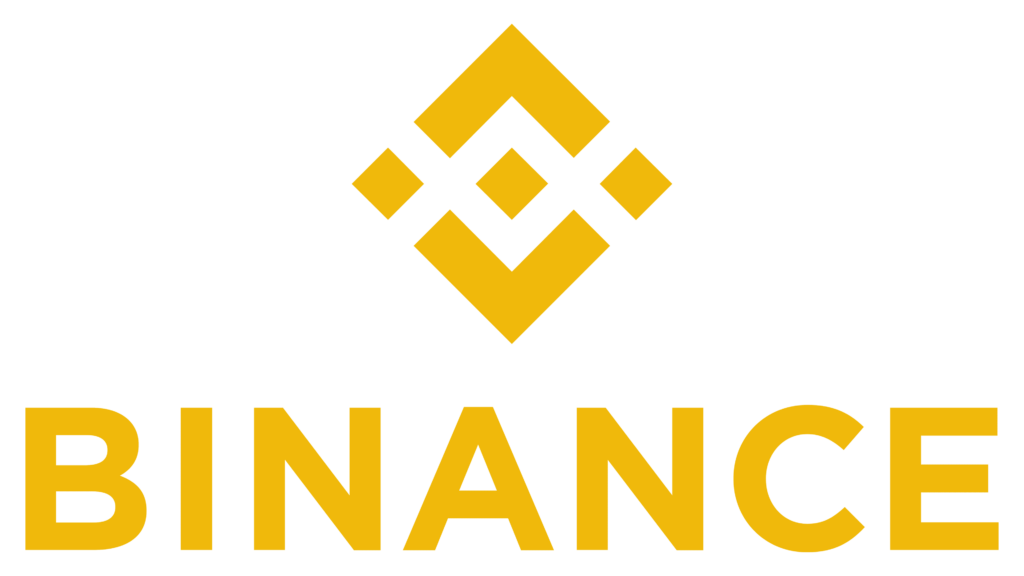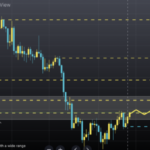What is Ethereum?
Ethereum is a decentralized, open-source blockchain platform that allows developers to build and deploy decentralized applications (dApps) using smart contracts. It was created in 2015 by Vitalik Buterin and has since become one of the most popular blockchain platforms in the world, with a market capitalization of over $200 billion as of early 2022.
Like Bitcoin, Ethereum uses a distributed network of nodes to maintain a secure and tamper-proof ledger of transactions. However, unlike Bitcoin, Ethereum is designed to be more flexible and programmable. This is achieved through the use of smart contracts, which are self-executing programs that automatically execute when certain conditions are met.
These smart contracts enable a wide range of decentralized applications to be built on top of the Ethereum blockchain, including decentralized finance (DeFi) applications, decentralized exchanges (DEXs), and non-fungible tokens (NFTs). Ethereum also has its own cryptocurrency called Ether (ETH), which is used to pay for transaction fees and incentivize network participants.
Overall, Ethereum has become a popular platform for developers looking to build decentralized applications due to its flexibility, programmability, and large developer community.

Why was Ethereum created?
Ethereum was created with the goal of expanding the capabilities of blockchain technology beyond just being a digital currency like Bitcoin. The creator of Ethereum, Vitalik Buterin, saw the potential for blockchain technology to enable not just peer-to-peer electronic payments, but also to build more complex decentralized applications (dApps).
Bitcoin was designed to be a digital currency, and its scripting language is limited in its capabilities, which makes it difficult to build more complex applications on top of its blockchain. Vitalik Buterin saw the need for a blockchain platform that would allow developers to create more versatile and sophisticated applications with built-in logic, rules and programmable automation.
Thus, Ethereum was created as a blockchain platform that allows developers to create and deploy decentralized applications using smart contracts. Smart contracts are essentially self-executing programs that run on the Ethereum blockchain and allow for the automation of various functions such as payments, governance, and digital asset creation and management. By providing a more flexible and programmable blockchain platform, Ethereum has opened up new possibilities for decentralized applications, especially in the areas of DeFi, NFTs, and other forms of digital assets.
How is Ethereum regulated?
Ethereum is a decentralized platform, which means that it is not controlled by any single entity or government. As a result, it is not subject to traditional forms of regulation that are typically applied to centralized institutions.
However, this does not mean that Ethereum operates in a completely unregulated environment. While there is no central authority that governs Ethereum, there are various regulatory bodies around the world that have taken different approaches to regulating cryptocurrencies and blockchain-based technologies.
For example, in the United States, the Securities and Exchange Commission (SEC) has taken a relatively strict stance on cryptocurrency regulation, considering certain cryptocurrencies to be securities and subject to existing securities laws. In contrast, other countries such as Switzerland have taken a more lenient approach to cryptocurrency regulation, providing a favorable regulatory environment for blockchain-based businesses.
Additionally, the Ethereum community has implemented various measures to promote self-regulation and protect users from fraud and other risks associated with the use of decentralized applications. This includes the development of decentralized exchanges (DEXs) that allow for trustless trading of cryptocurrencies, as well as the use of smart contracts to enforce certain rules and regulations within dApps.
Overall, the regulation of Ethereum is a complex and evolving topic, and its regulatory status can vary depending on the country or region in which it is being used. However, the decentralized and open-source nature of Ethereum makes it difficult for any single entity or government to exert complete control over the platform.
Is Ethereum a good investment?
Ethereum is one of the most popular and widely used blockchain platforms in the world, with a large and growing community of developers, users, and investors. Ethereum’s versatility, programmability, and ability to support a wide range of decentralized applications (dApps) has led to a number of innovative projects being built on top of its platform, particularly in the area of decentralized finance (DeFi).
Like any investment, it’s important to conduct thorough research and analysis before investing in Ethereum or any other cryptocurrency or blockchain-based asset. It’s also important to understand the potential risks associated with investing in a new and rapidly evolving technology.
Factors that could potentially impact the value of Ethereum include changes in market demand and adoption, the development and introduction of new competing blockchain technologies, regulatory changes, and security vulnerabilities or other risks associated with the use of decentralized applications built on the Ethereum platform.
In summary, whether or not Ethereum is a good investment is a subjective question that depends on individual circumstances and risk tolerance. It’s important to do your own research and consult with a financial advisor before making any investment decisions.
Who created Ethereum?
Ethereum was created by Vitalik Buterin, a Russian-Canadian programmer and writer, in 2013. Buterin was born in 1994 in Kolomna, Russia and moved to Canada with his family when he was six years old.
Buterin became interested in cryptocurrencies and blockchain technology at a young age and began writing articles about them for various online publications. In 2012, he co-founded Bitcoin Magazine.
Where and how to buy Ethereum?
There are several ways to buy Ethereum (ETH), one of the most popular cryptocurrencies in the market. Here are some options:
- Cryptocurrency exchanges: You can buy Ethereum from a cryptocurrency exchange such as Binance, Coinbase, Kraken, or Gemini. These exchanges allow you to buy Ethereum using fiat currencies like US dollars, euros, or British pounds. To buy Ethereum on an exchange, you need to sign up for an account, verify your identity, and then fund your account using a bank transfer or credit/debit card. Once you have funds in your account, you can use them to buy Ethereum.
- Peer-to-peer marketplaces: Another option is to buy Ethereum from a peer-to-peer marketplace like LocalEthereum or Paxful. These marketplaces allow you to buy Ethereum directly from other individuals without the need for a middleman. To buy Ethereum on a peer-to-peer marketplace, you need to sign up for an account, find a seller who accepts your preferred payment method, and then initiate a trade. Once the seller confirms receipt of your payment, they will release the Ethereum to your wallet.
- ATMs: Some cities have Ethereum ATMs, where you can buy Ethereum using cash. You can locate Ethereum ATMs using websites like Coin ATM Radar.
Regardless of the method you choose, it’s important to store your Ethereum in a secure wallet, such as a hardware wallet like Trezor or Ledger, to ensure the safety of your assets.
What are the best Ethereum wallets?
There are several types of Ethereum wallets available, each with its own advantages and disadvantages. Here are some of the best Ethereum wallets based on their features, security, and popularity:
- Ledger Nano X: The Ledger Nano X is a hardware wallet that offers top-of-the-line security features. It is a popular choice among crypto investors because it stores your private keys offline, making it immune to online threats like hacking and phishing.
- Trezor Model T: The Trezor Model T is another popular hardware wallet that is known for its security and ease of use. It is designed to be user-friendly, with a touchscreen interface that makes it easy to navigate and manage your Ethereum holdings.
- MetaMask: MetaMask is a software wallet that is available as a browser extension for Chrome, Firefox, and Brave. It allows you to manage your Ethereum holdings and interact with Ethereum-based decentralized applications (dApps) directly from your browser.
- MyEtherWallet: MyEtherWallet (MEW) is another popular software wallet that allows you to store, manage, and trade Ethereum and other ERC-20 tokens. It is a free, open-source wallet that can be accessed from any device with an internet connection.
- Exodus: Exodus is a desktop and mobile wallet that supports Ethereum and other cryptocurrencies. It has a user-friendly interface and offers features like automatic backups and the ability to exchange cryptocurrencies within the wallet.
It’s important to note that no wallet is completely foolproof, and it’s always best to take additional security measures such as enabling two-factor authentication and keeping your recovery seed phrase in a safe place.
Can you mine Ethereum?
Yes, you can mine Ethereum (ETH) using a computer or specialized mining hardware. Ethereum uses a proof-of-work (PoW) consensus algorithm, which means that miners need to solve complex mathematical problems to verify transactions on the network and earn rewards in the form of newly minted ETH.
However, Ethereum is in the process of transitioning to a proof-of-stake (PoS) consensus algorithm, which will require a different approach to mining. In the PoS model, validators are chosen to verify transactions based on the amount of ETH they hold and are willing to lock up as collateral. This model does not require miners to solve complex mathematical problems and will be less energy-intensive than PoW.
If you are interested in mining Ethereum, there are several factors to consider, including the cost of electricity, the cost of hardware, and the difficulty of mining. It’s important to note that mining profitability can fluctuate based on market conditions, network difficulty, and other factors.
Additionally, as Ethereum moves towards the PoS model, mining may become less profitable or even obsolete. Therefore, it’s important to stay up to date with developments in the Ethereum ecosystem and adjust your mining strategy accordingly.
Is Ethereum mining profitable?
The profitability of Ethereum mining depends on several factors, including the cost of electricity, the cost of hardware, the difficulty of mining, and the price of Ethereum. The profitability of mining Ethereum can fluctuate based on market conditions, network difficulty, and other factors.
At the time of writing, Ethereum mining is still profitable for some miners, particularly those with access to low-cost electricity and specialized mining hardware. According to some estimates, the average mining profitability for Ethereum is around $15-$20 per day per GPU, assuming electricity costs of $0.12 per kWh.
However, it’s important to note that Ethereum is in the process of transitioning to a proof-of-stake (PoS) consensus algorithm, which will require a different approach to mining. In the PoS model, validators are chosen to verify transactions based on the amount of ETH they hold and are willing to lock up as collateral. This model does not require miners to solve complex mathematical problems and will be less energy-intensive than proof-of-work (PoW).
As Ethereum moves towards the PoS model, mining may become less profitable or even obsolete. Therefore, it’s important to stay up to date with developments in the Ethereum ecosystem and adjust your mining strategy accordingly.
Which celebrities endorse or invest in Ethereum
While some celebrities have expressed an interest in cryptocurrency, it’s important to note that cryptocurrency investment is a personal decision and should not be influenced solely by celebrity endorsements. As an AI language model, I do not have access to up-to-date information on celebrity endorsements or investments. However, it’s worth noting that in the past, some celebrities have expressed an interest in Ethereum and other cryptocurrencies, including:
- Mark Cuban: The billionaire entrepreneur and owner of the Dallas Mavericks has expressed an interest in Ethereum and other cryptocurrencies. In 2021, he invested in a blockchain-based social network called Rally.
- Elon Musk: The CEO of Tesla and SpaceX has tweeted about Ethereum and other cryptocurrencies in the past, though he has also expressed concerns about their environmental impact.
- Paris Hilton: The socialite and reality TV star has expressed an interest in cryptocurrency and has promoted several cryptocurrency-related projects on social media.
- Ashton Kutcher: The actor and entrepreneur has invested in several cryptocurrency-related startups, including BitPay and Blockfolio.
- Chamath Palihapitiya: The venture capitalist and former Facebook executive has expressed an interest in Ethereum and other cryptocurrencies and has invested in several cryptocurrency-related projects, including the cryptocurrency exchange Coinbase.
It’s important to do your own research and consult with financial advisors before making any investment decisions.
If you are interested in this type of content, you can read the profile we wrote on bitcoin here.







